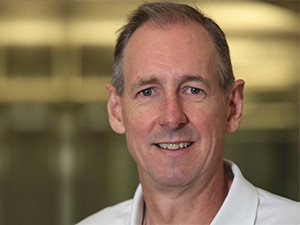
WesBank and FNB as part of the FirstRand Group plan to replace the shade-net carports at their shared offices in Fairland, Johannesburg, with solar-panel carports to supplement power requirements, in a R60 million project.
According to Chris de Kock, the CEO of WesBank, FNB has contributed 51% to the solar power project while WesBank has invested 49%. The two financial institutions are collaborating to reach a target of reducing the carbon dioxide emissions by 34%, by 2020, he adds.
"Currently, the FirstRand Group spends roughly R5.57 million a year on environmental and conservation efforts alone."
De Kock says the 150 000 square metre campus in Fairland achieved its 4-star green rating in September 2015. The financial institutions hope that the installation of 7 019 solar panels across 978 carports will help them achieve a 5-star green rating from the Green Building Council of South Africa (GBCSA).
Once WesBank and FNB's solar carports are complete, they will supplement a sizeable portion of the power requirements for the Fairland campus, says De Kock.
According to WesBank, more than 5 000 WesBank and FNB employees are based at the Fairland campus, which has 978 outdoor parking bays.
It says over the next 11 months the ageing carports will be replaced by new structures that use 7 019 photovoltaic panels.
Along with providing shade for vehicles, this installation will be capable of providing 1 806 kilowatt hours of energy (peak) to the building - with a total expected supply of 3 000 000 kilowatt hours per annum, it notes, adding this would be enough to power the average South African household for nearly 800 years.
The project will be rolled out in two phases, with the first to be completed by March 2017 - the second phase is scheduled to be complete by September.
"It is absolutely our responsibility to embark on initiatives like this. It is our social and environmental duty to reduce our carbon footprint wherever it is possible to do so, says De Kock.
"With this solar installation we will be ushering in the era of sustainable energy for the business - a revolution that that will also become a reality for people's houses and cars."
As more businesses invest in solar, it helps lower the load on the grid, conserve resources and reduce carbon emissions, says De Kock.
"Solar power is not only an important step towards implementing sustainable energy but also a cost-effective solution that all businesses should invest in.
"We all live on the same planet and breath the same air. It is not just the banking fraternity, but every single business that has a responsibility to do their part to conserve the environment."
De Kock believes SA's climate is ideal for solar.
"Most areas in SA average more than 2 500 hours of sunshine per year - among the highest in the world, thanks to its geographical location. It makes both environmental and business sense to use sunshine to power our offices, homes, our electric bicycles and cars."
Share